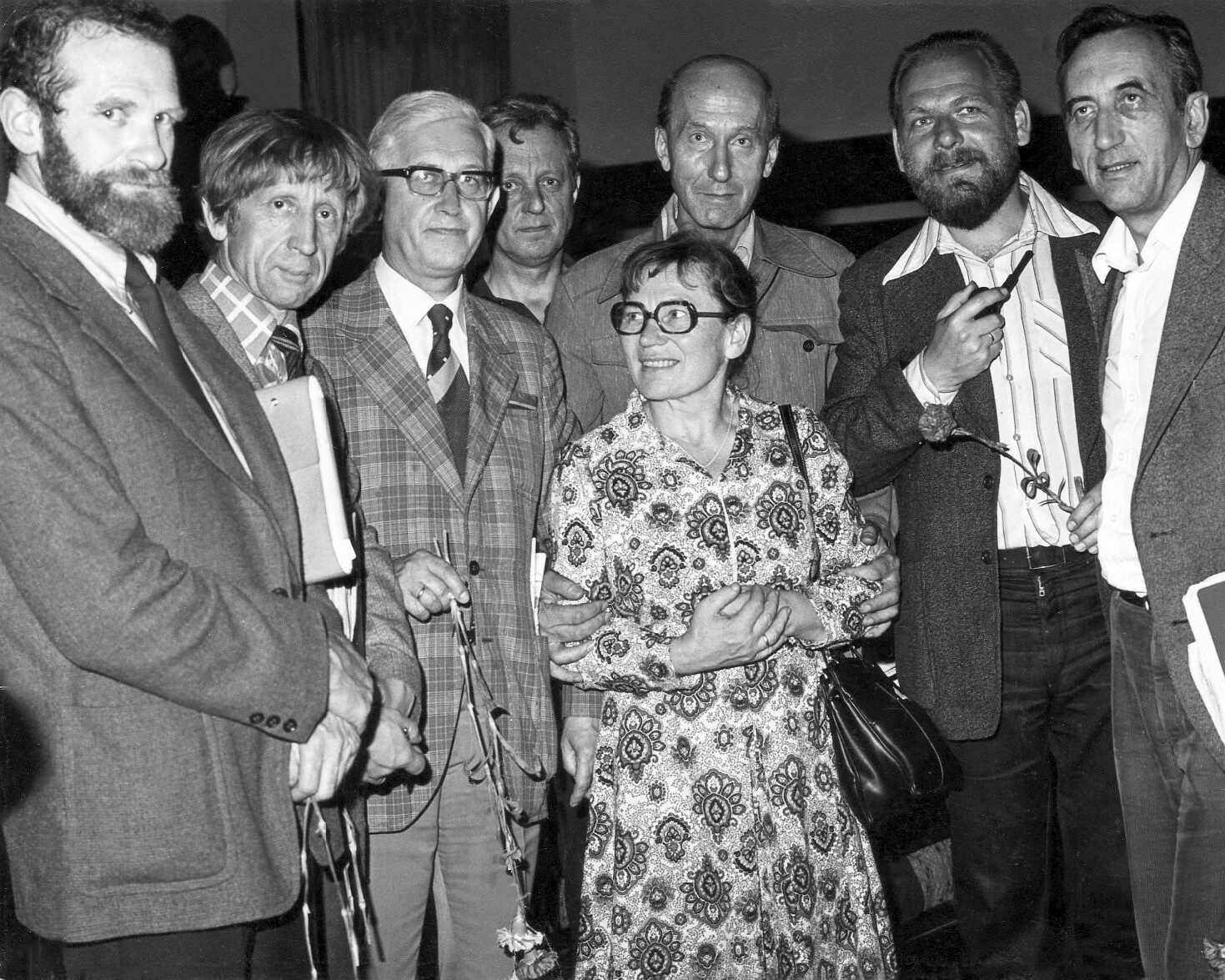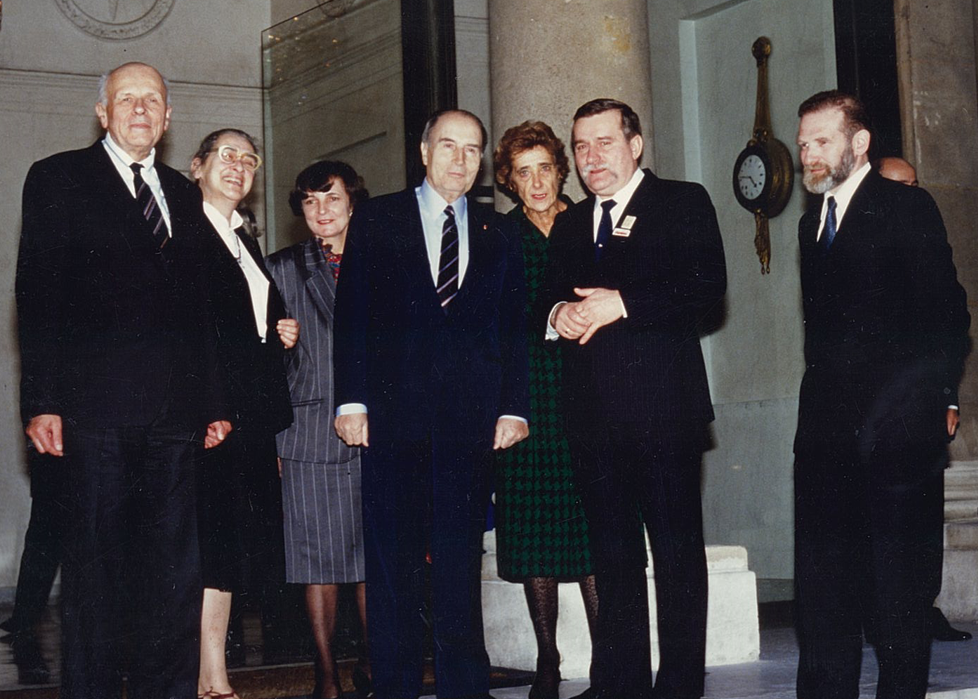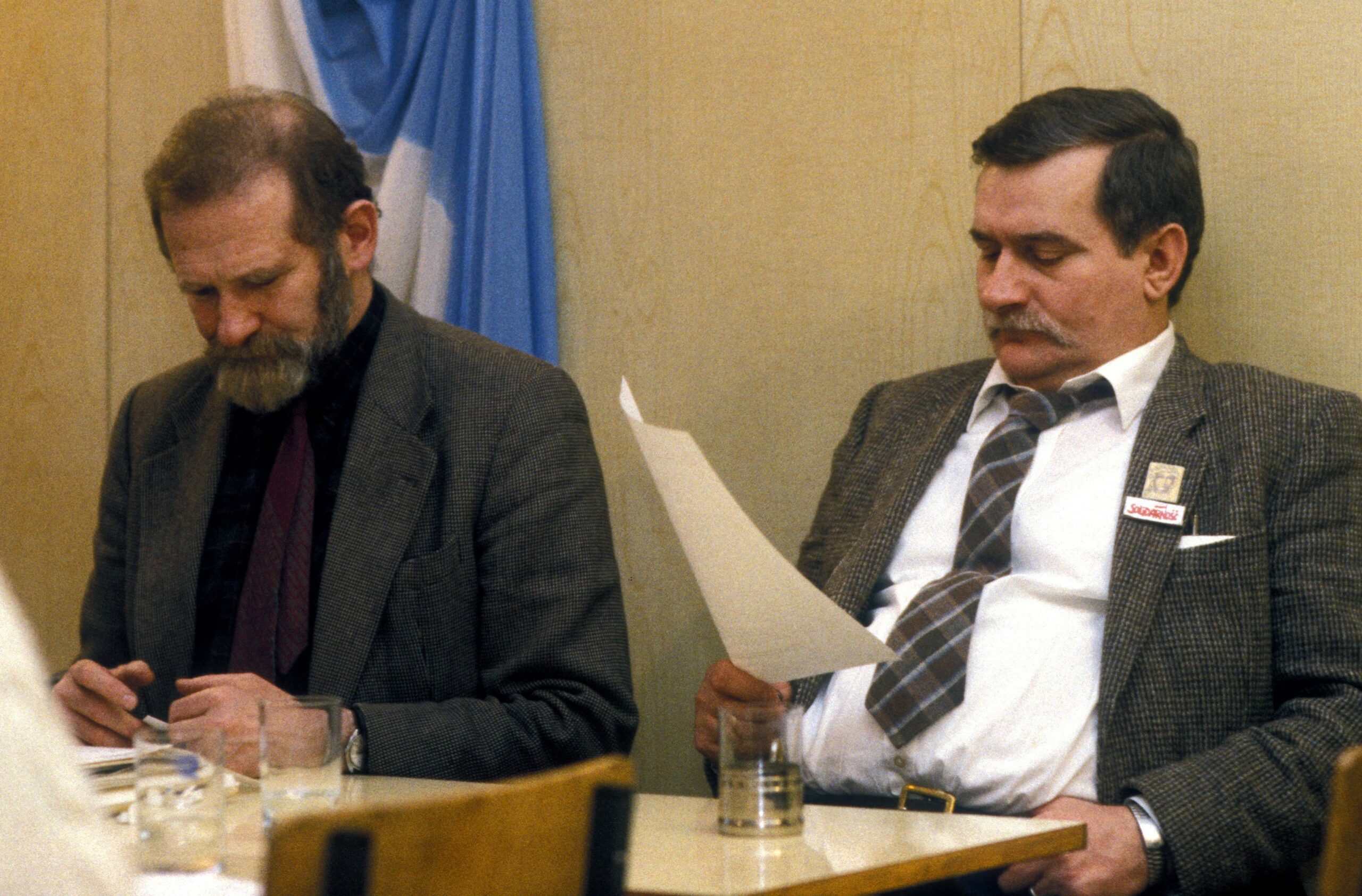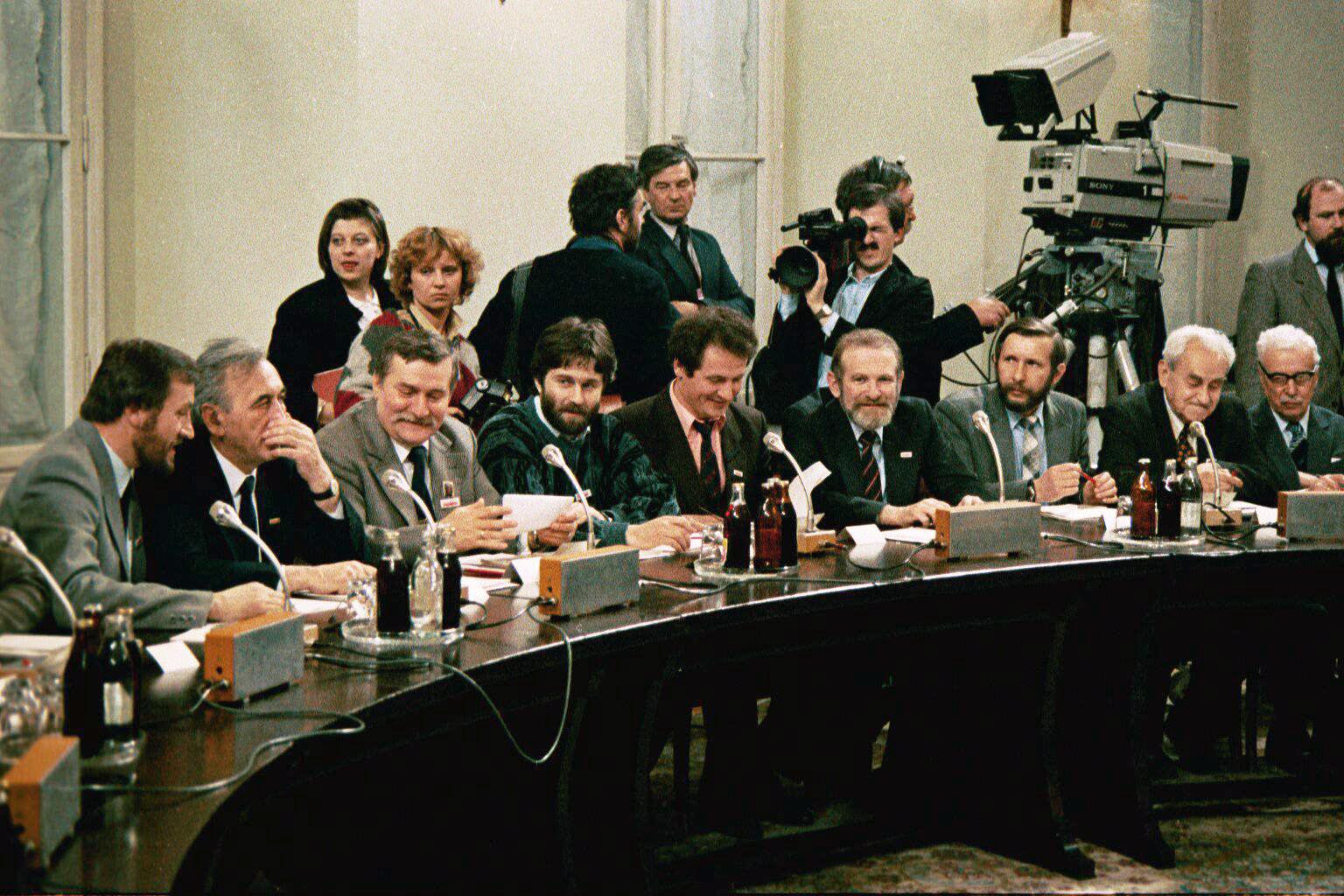Freedom fighter
Bronisław Geremek had been a member of the Polish United Workers’ Party (PZPR) since 1950. He left the party on 22 August 1968, the day after the Warsaw Pact troops invaded Czechoslovakia. In was at this momenet when he found himself under surveillance by the communist Security Service (SB) for carrying out “anti-socialist activities”. In 1970, the SB assessed that Geremek “exerts a negative influence on the attitude of many employees of the Institute of History of the Polish Academy of Sciences (PAN), and has numerous connections with representatives of revisionist tendencies in other scientific institutions of the PAN”.
At the end of 1975, Bronisław Geremek co-signed the “Letter of Seven” protesting against the amendments to the Constitution of the People’s Republic of Poland (PRL) introducing provisions on the leading role of the communist party (PZPR) and friendship with the Soviet Union. In November 1976, the SB opened a case against B. Geremek under the code name “Lis” (Fox).
On 22 August 1980, together with Tadeusz Mazowiecki, he reached the striking Gdańsk Shipyard with an appeal by 64 intellectuals which expressed support for the strikers and called on both sides of the conflict to reach an agreement. Earlier, on 20 August, B. Geremek had submitted this appeal to the Office of the Central Committee of the Polish United Workers’ Party (PZPR).
From the moment he arrived at the Gdansk shipyard, B. Geremek advised Lech Wałęsa and “Solidarity” for next ten dramatic years that led finally to the emergence of democratic Poland. After the strike ended with Porozumienia Sierpniowe (the August Agreements), he chaired the Programme Committee of the 1st Congress of the Solidarity Union and co-authored Solidarity’s political programme entitled “Self-governing Republic”. In February 1981, B. Geremek visited Brussels, where he met with representatives of international trade union centres.
In the last weeks preceding the imposition of martial law in 1981, on 13 November 1981, B. Geremek and T. Mazowiecki held talks in Brussels discussing the possibility of mobilising international aid for Poland following the major food supplies crises in the country.
After martial law was imposed, he was arrested on 12 December 1981 and was held in the Detention Centre in Warsaw-Białołęka, and then in the centres in Jaworze and Darłówek until 23 December 1982. After his release, he was subject to constant surveillance. He was arrested again on 17 May 1983 on charges of organising illegal meetings and was held in the Rakowiecka prison in Warsaw until 29 July 1983.
Throughout the 1980s, B. Geremek was the main architect of the geopolitical strategy of the Solidarity largely contributing to making the Polish struggle for freedom a matter of international attention.
On 14 January 1984, the Security Service searched B. Geremek’s apartment, discovering the texts of Lech Wałęsa’s Polish and French speeches with handwritten corrections by B. Geremek prepared for the Nobel Prize ceremony. On 19 April 1985, a week after his meeting with the British Foreign Secretary Geoffrey How, upon a personal instruction of communist leader general Jaruzelski, he was dismissed and removed from the Institute of History of the Polish Academy of Sciences. At the initiative of the French historian Jacques Le Goff, a group of French academics then signed a petition against his removal from the PAN and the “repeated casting of doubt on his scientific reputation”.
In 1985, Bronislaw Geremek and Tadeusz Mazowiecki prepared a report entitled ‘Poland – 5 years after August’, in which they called for a return to the August Agreements and dialogue to reform the country. In the summer of 1986, Bronislaw Geremek was once again detained and subjected to daily interrogations lasting many hours for 20 days. In April 1987, the spokesman for the communist government, Jerzy Urban, accused him at a press conference of collaboration with US intelligence.
In 1989, B. Geremek served as Solidarity’s chief strategist and executor of the negotiations on changes to the political system during the Round Table talks between the opposition and the communist party that led to the emergence of democratic Poland.
Sources:
Encyklopedia Solidarności: Bronisław Geremek https://encysol.pl/es/encyklopedia/biogramy/15919,Geremek-Bronislaw.html
Andrzej Friszke „Bronisława Geremka droga do wolnej Polski”, https://wiez.pl/2017/03/06/bronislawa-geremka-droga-do-wolnej-polski/
Halina Manikowska „Bronisław Geremek” https://ihpan.edu.pl/zmarli/bronislaw-geremek-1932-2008/
Magdalena Pasikowska-Schnass „Bronisław Geremek. W poszukiwaniu zjednoczonej Europy” https://www.europarl.europa.eu/thinktank/en/document/EPRS_BRI(2021)698820
Patryk Pleskot „Siła alternatywnej dyplomacji. Polityka zagraniczna „Solidarności” w latach osiemdziesiątych – rola Bronisława Geremka”, [w:] Bronisław Geremek. Ojciec polskiego liberalizmu, Warszawa 2010
Tomasz Wiślicz „Bronisław Geremek. Historyk niemarginalny”, [w:] Bronisław Geremek. Ojciec polskiego liberalizmu, Warszawa 2010




